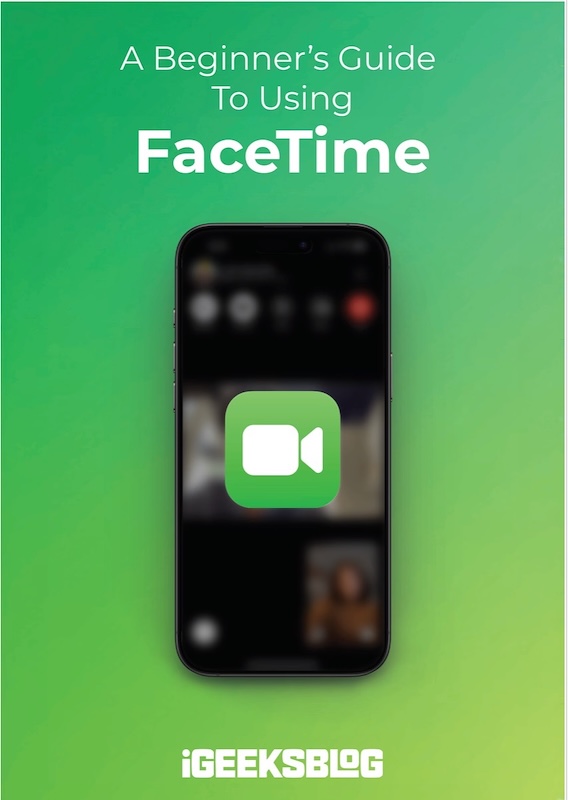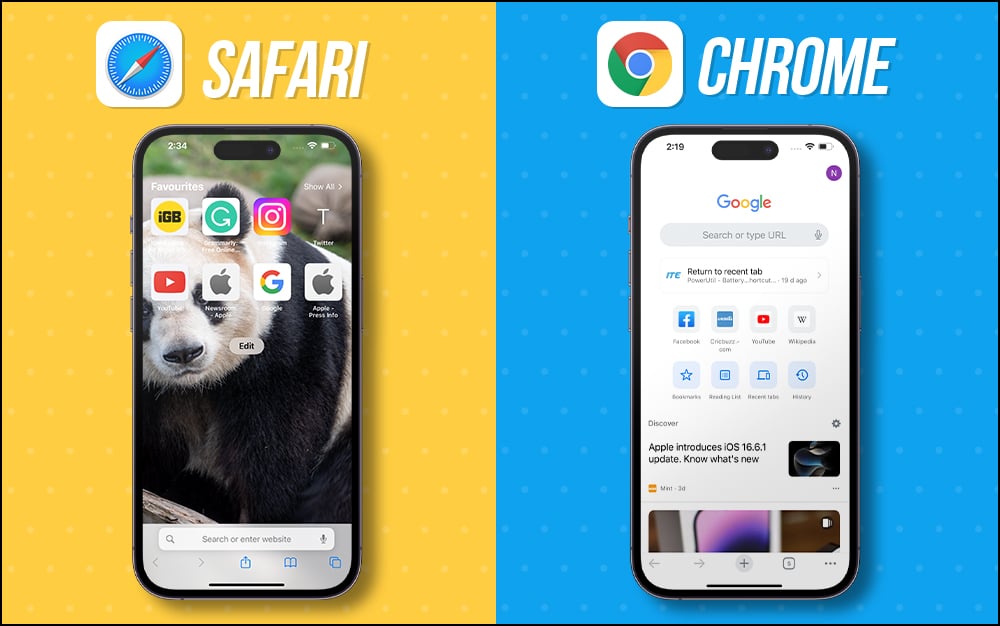
FaceTime Like a Pro
Get our exclusive Ultimate FaceTime Guide 📚 — absolutely FREE when you sign up for our newsletter below.

FaceTime Like a Pro
Get our exclusive Ultimate FaceTime Guide 📚 — absolutely FREE when you sign up for our newsletter below.
Here is our guide on Safari vs Chrome. Find out which browser is better suited for your iPhone and Mac.
Choosing the right web browser for our devices is essential for productivity and efficiency. Safari and Chrome are two popular choices for Apple devices, each with strengths and weaknesses. As someone who has extensively used both, I understand the nuances that set them apart. So, in this blog, I will compare Safari vs. Chrome to help you decide which browser is better for your iPhone and Mac.
Here’s a concise comparison of Safari and Chrome:
| Feature | Safari | Chrome |
| Developer | Apple | |
| Engine | WebKit | Blink |
| Default Search | ||
| Platform Support | Exclusive to Apple devices | Cross-platform (Windows, macOS, Linux, iOS, Android) |
| Integration | Deep integration with Apple’s ecosystem | Integrates with Google services |
| Customization | Limited extensions; focuses on simplicity | Extensive library of extensions |
| Privacy Features | Intelligent Tracking Prevention; Privacy Report | Incognito Mode; customizable privacy settings |
| Performance | Optimized for Apple hardware; energy-efficient | Resource-intensive; may impact battery life |
In my experience, Safari offers a clean and minimalist interface that aligns seamlessly with the overall aesthetics of Apple’s ecosystem. With its sleek and intuitive design, you can easily navigate between tabs, access bookmarks, and have a clutter-free browsing experience. Besides, it offers group tabs management for organizing your browsing. So, you can easily focus on the content.

On the other hand, Chrome provides a more customizable interface with a vast array of themes and the ability to personalize the toolbar. The best part is the interface looks the same across devices so you can continue your work from any platform without any hassle.
While both browsers are user-friendly, your preference might depend on whether you value simplicity (Safari) or customization (Chrome).
Safari’s integration with macOS and iOS provides a cohesive experience. Features like Handoff allow you to continue browsing sessions seamlessly between your iPhone and Mac. Additionally, Safari’s Reading List lets you save articles for later, which I find particularly useful for offline reading.
Chrome also offers synchronization across devices using your Google account, ensuring your bookmarks, history, and settings are consistent, regardless of the platform. However, the deeper integration of Safari with Apple’s ecosystem gives it an edge in terms of ease of use for Apple device users.
Safari is optimized for Apple hardware, resulting in faster performance and better energy efficiency. I’ve noticed that my MacBook’s battery lasts longer when using Safari compared to Chrome.
Chrome, while fast and efficient, is known to be resource-intensive, which can lead to quicker battery drain on laptops. If performance and battery life are crucial to you, Safari might be the preferable choice.
Both browsers prioritize user security. Safari includes features like fraudulent website warnings and sandboxing to protect against malicious code. Chrome also offers robust security measures, including Safe Browsing, which alerts users about dangerous sites and downloads. Regular updates in both browsers ensure that security vulnerabilities are promptly addressed. In terms of security, both browsers are reliable, but it’s essential to keep them updated to the latest versions.
Privacy is a significant consideration for many users. Safari employs Intelligent Tracking Prevention to limit advertisers from tracking your online activity. The Privacy Report feature provides transparency into which trackers have been blocked. Chrome offers Incognito Mode, which doesn’t save your browsing history or cookies, but it’s worth noting that Google is primarily an advertising company, and Chrome has faced criticism over its data collection practices. If privacy is a top priority, Safari’s approach may align better with your preferences.
Chrome excels in customization, boasting a vast library of extensions that enhance functionality and personalize the browsing experience. Whether you need productivity tools, ad blockers, or themes, Chrome’s Web Store has an extensive selection. Safari supports extensions as well, but the selection is more limited. If you enjoy tailoring your browser to your specific needs, Chrome offers more flexibility.
Safari’s Reading Mode is a feature I frequently use; it strips away unnecessary clutter from web pages, providing a distraction-free reading experience. Chrome offers a similar feature called Reader Mode, but it’s not enabled by default and requires manual activation. Both browsers support picture-in-picture mode for videos, allowing you to watch content in a floating window while multitasking. However, Safari’s implementation feels more seamless on macOS and iOS devices.
After using both browsers extensively, I’ve found that Safari offers a more integrated and energy-efficient experience on iPhone and Mac. Its deep integration with Apple’s ecosystem, focus on user privacy, and optimized performance make it a compelling choice for Apple users.
However, if you rely heavily on Google’s services or require extensive customization through extensions, Chrome remains a strong contender. Ultimately, the best browser for you depends on your specific needs and preferences.
Explore more…